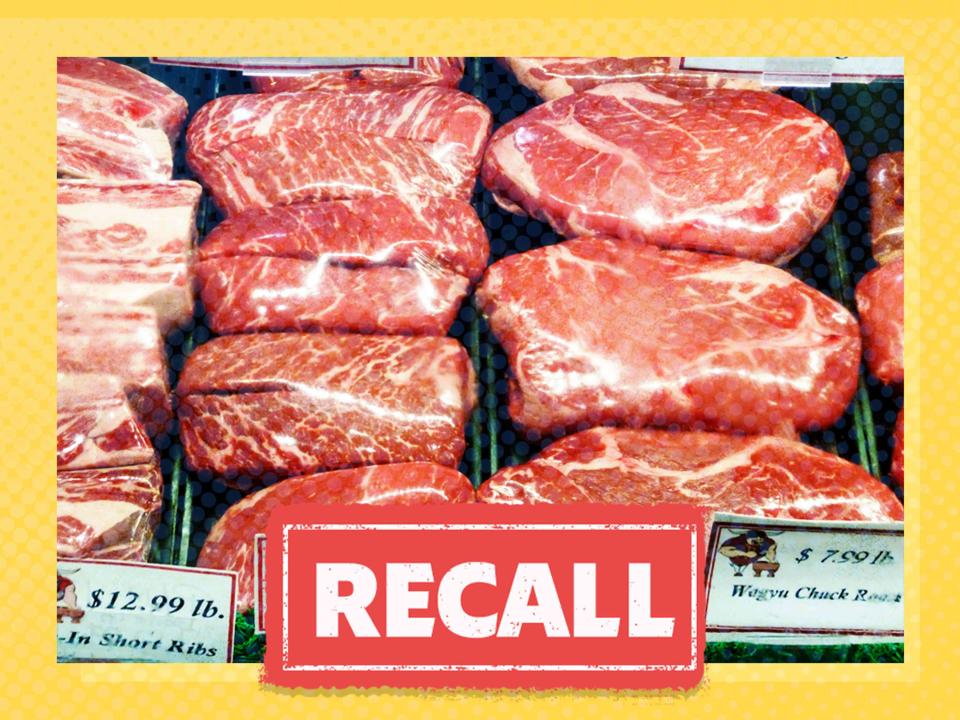More Than 3,000 Pounds of Beef Recalled Due To E. coli Contamination
Check your fridge and freezers!

Jeff Greenberg/Getty Images/Allrecipes
Elkhorn Valley Packing is recalling nearly 3,500 pounds of beef chuck because it may be contaminated with E. coli. The recalled product is labeled Elkhorn Valley Pride Angus Beef Beef Chuck 2-Piece Boneless and was packed on February 16.
Elkhorn Valley’s recalled beef chuck was distributed in Connecticut, Illinois, Indiana, Maryland, Massachusetts, Michigan, New Jersey, New York, and Pennsylvania. It was shipped to retail stores, distributors, federal establishments, and wholesale locations—including restaurants, hotels, and institutions.
You’ll know if you have the recalled beef chuck if it has the establishment number EST. M-19549 inside the USDA mark of inspection—or you can find the full list of lot and serial numbers on the USDA site.
There haven’t been any confirmed reports of illnesses caused by consuming the meat, but if you have the recalled beef chuck, do not consume it or distribute it further. Instead, you should throw the contaminated meat away or return it to the place of purchase.
The USDA’s Food Safety and Inspection Service (FSIS) discovered the E. coli contamination following a routine test where the beef tested positive for STEC O103.
People infected with STEC O103 can become sick within two to eight days of consuming the contaminated food—common symptoms may include diarrhea and vomiting. While most people recover within a week, some may develop a more severe infection—which could lead to Hemolytic uremic syndrome (HUS) kidney failure. Anyone can develop HUS, but it’s most common in children under the age of 5 or older adults with weakened immune systems. HUS can cause easy bruising, pallor, and decreased urine—if you experience these symptoms, you should seek emergency medical care.
If you have any questions regarding the recall, you can contact the USDA’s toll-free Meat and Poultry Hotline at 888-MPHotline (888-674-6854) or chat with someone via AskUSDA.

